In today’s post I am sharing quick and healthy hiking snacks that both you and your kids will enjoy! These snacks are filled with nourishing ingredients to help get you to the top of your mountain.
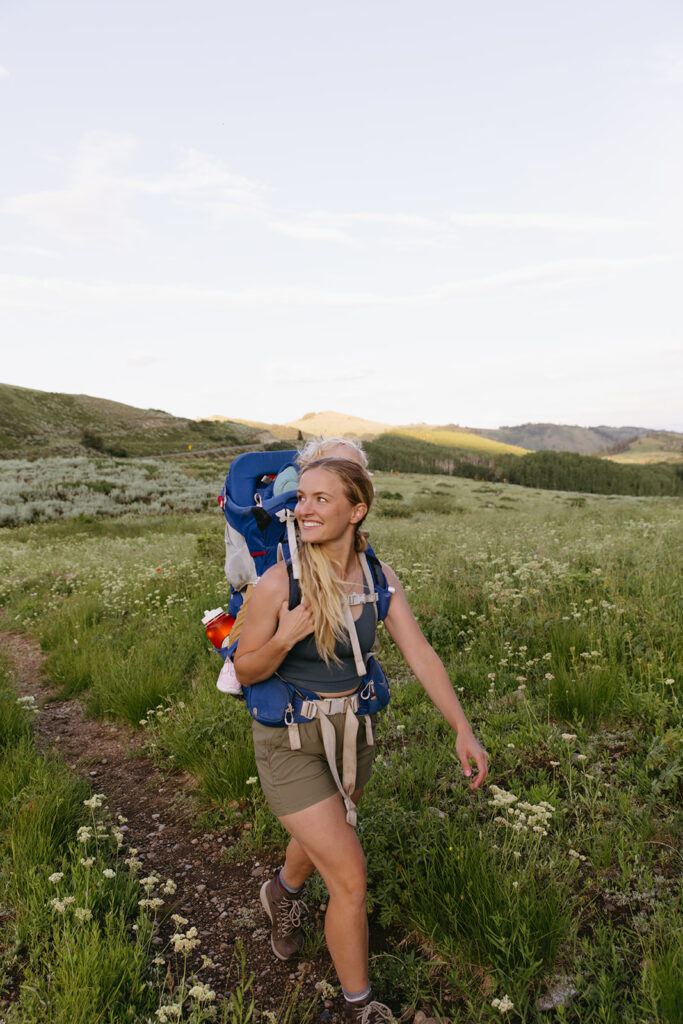
I think most people would agree that having good snacks on a hike is the key to happiness (I’m only kind of kidding). But it is important to fuel yourself to get up a mountain and it’s always nice to enjoy the snacks you carry up. And if you’re hiking with kids, it’s especially important to bring snacks that they will eat and enjoy.
Everyone has their own definition of what they consider to be “healthy”. For me, it just means foods with simple ingredients. I do love to bring along fun foods like candy (my favorites are sour gummy worms and almond Snickers) but I’m guessing you’re not reading this post for those kinds of ideas.
While snacks on the trail are important to keep your energy up, don’t forget to eat well the day before you hike. It’s also equally important to hydrate before you start your hike and once you’re on the trail. These are some of my favorite electrolytes to drink on the trail!
So with that in mind, here are my favorite snacks for hiking that aren’t just loaded with sugar that actually give me and my kids sustainable energy to keep us happy on our hike.
*This post is not sponsored. Some of the links shared in this post may be affiliate links meaning I make a small commission off of your purchase (with no extra cost to you). This allows me to continue to create free content for my readers. Thank you for your continued support!
Why Are Hiking Snacks Important?
Snacking while hiking is crucial for maintaining energy, stamina, and overall well-being. Hiking is a physically demanding activity that requires a steady source of fuel to prevent fatigue and maintain blood sugar levels. Carbohydrate and protein-rich snacks help sustain energy, keep blood glucose stable, and aid in muscle repair and recovery, which is particularly important during long or strenuous hikes.
In addition to providing energy, snacks contribute to hydration, especially when consuming water-rich foods like fruits. Regular snacking supports mental alertness, ensuring hikers stay focused and navigate safely. It also prevents overeating in one sitting, which can lead you to feeling discomfort and sluggish. Nutrient-rich snacks replenish essential vitamins and minerals lost through sweat, enhancing mood and making the hiking experience more enjoyable. By planning nutritious snacks, can make sure you remain energized, focused, and safe throughout your hike.
How Often Should You Eat During a Hike?
During a hike, it is generally recommended to eat small snacks every 1-2 hours to maintain energy levels and prevent fatigue. Here are some guidelines to consider:
- Start with a Good Breakfast: Ensure you have a nutritious breakfast before starting your hike to provide a solid energy base.
- Regular Snacking: Eat small snacks every 1-2 hours. This helps keep your energy levels stable and prevents blood sugar drops.
- Hydration Breaks: Pair your snacks with regular hydration. Drinking water or electrolytes frequently is crucial, especially in hot or strenuous conditions.
- Balanced Intake: Aim for a mix of carbohydrates, proteins, and fats in your snacks to provide sustained energy and aid in muscle repair.
- Listen to Your Body: Pay attention to your hunger and energy levels. If you feel tired or hungry, have a snack, even if it’s slightly ahead of your planned schedule.
Staying Hydrated on Your HIke
Staying hydrated while hiking is essential for maintaining physical performance and preventing dehydration, which can lead to serious health issues. As you hike, your body loses water through sweat, and this loss increases with higher temperatures, humidity, and exertion levels. It’s important to drink water regularly, not just when you feel thirsty, as thirst can be a late indicator of dehydration. Carry enough water to last the entire hike, and consider using a hydration pack or multiple water bottles to make it easier to drink frequently.
In addition to water, incorporating electrolyte-rich fluids or snacks can help replenish essential salts lost through sweat. Electrolytes are crucial for maintaining muscle function and preventing cramps. Planning your hike with access to water sources, such as streams or refill stations, can also be beneficial. Using water purification methods like filters or tablets ensures you can safely drink from natural sources. Here is a post I did about How to Get Clean Water When You’re Hiking. By prioritizing hydration, you can enhance your hiking experience, maintain energy levels, and reduce the risk of dehydration-related issues.
How Much Water Should You Bring?
The amount of water you should carry on a hot hike can depend on a number of factors, such as the length and difficulty of the hike, the temperature, and your personal hydration needs. However, a general guideline is to carry at least 2 liters of water per person for a short day hike. For kids it will be a little less depending on their age and how much they are hiking. For longer or more strenuous hikes, or in extremely hot weather, you might need to carry more – perhaps up to 1 gallon (around 4 liters).
Here are a few more detailed considerations:
- Duration of the Hike: The longer you’ll be out, the more water you’ll need. Remember that you’ll also need more water if your hike involves uphill or strenuous sections, even if it’s not particularly long.
- Temperature and Humidity: The hotter and more humid the weather, the more you’ll sweat, and hence the more water and electrolytes you’ll need to replace lost fluids.
- Personal Factors: Everyone sweats at different rates, and larger people generally need more water than smaller people. Men generally need more water than women. If you’re already dehydrated before the hike, you’ll need to drink more.
- Availability of Water Sources: If you know there will be reliable and safe water sources along your route, you might be able to carry less water and replenish your supply along the way. However, always treat or filter water from natural sources to remove potential contaminants. Here are a couple of water filter options that are quick and easy to use:
Always carry a bit more water than you think you’ll need, in case the hike takes longer than expected or conditions are hotter or more strenuous than you anticipated.
My Favorite Healthy Hiking Snacks
Here are my favorite healthy hiking snacks that include a variety of carbs, protein, fats, and some with extra salt.
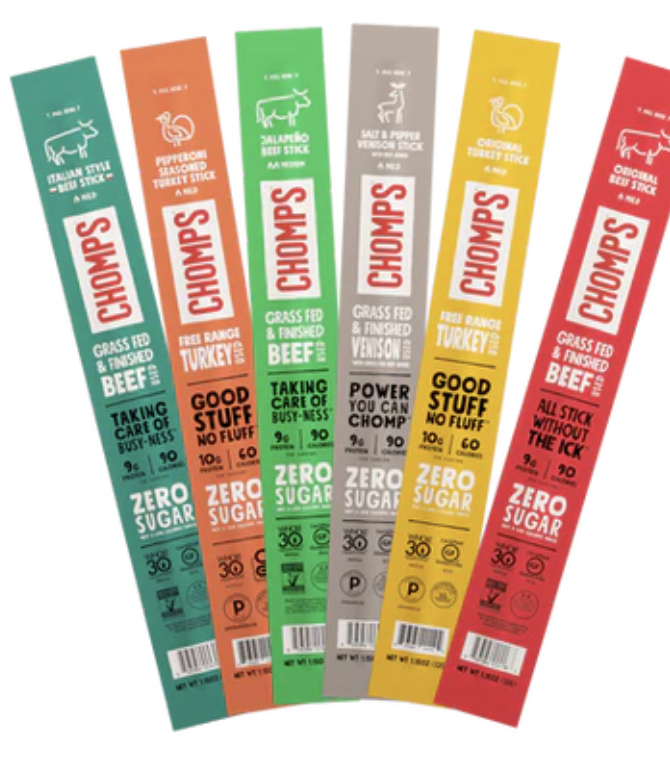
Beef Sticks: I have horrible memories of my brother eating Slim Jims and smelling them on his breath for what seemed like days. But meat sticks have come a long way and are actually one of our favorite snacks. I love the Chomps brand but haven’t tried many of their different flavors. They have simple ingredients, are protein packed, and my kids love them.
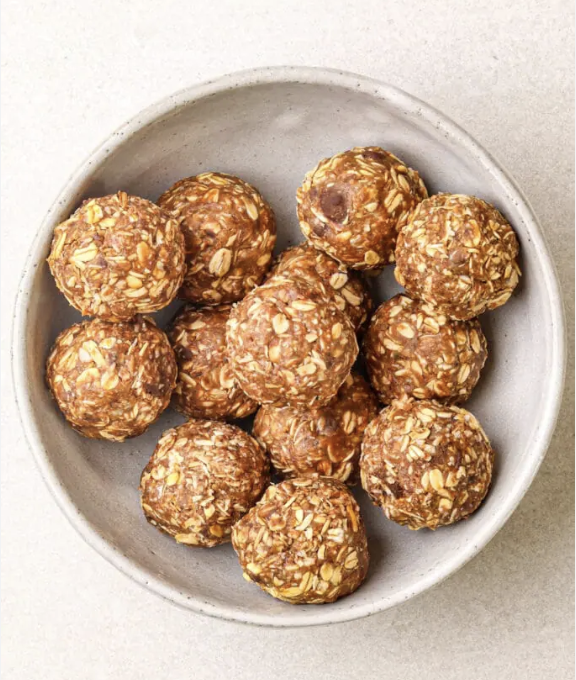
Power Balls: Power balls (or protein balls) only takes a little prep, but mixing oats, nut butter, and a few flavorings into power balls packs a ton of nutrients and energy into a small serving. My favorite recipe is this one, but any search on Pinterest will find you endless options that are quick and delicious.
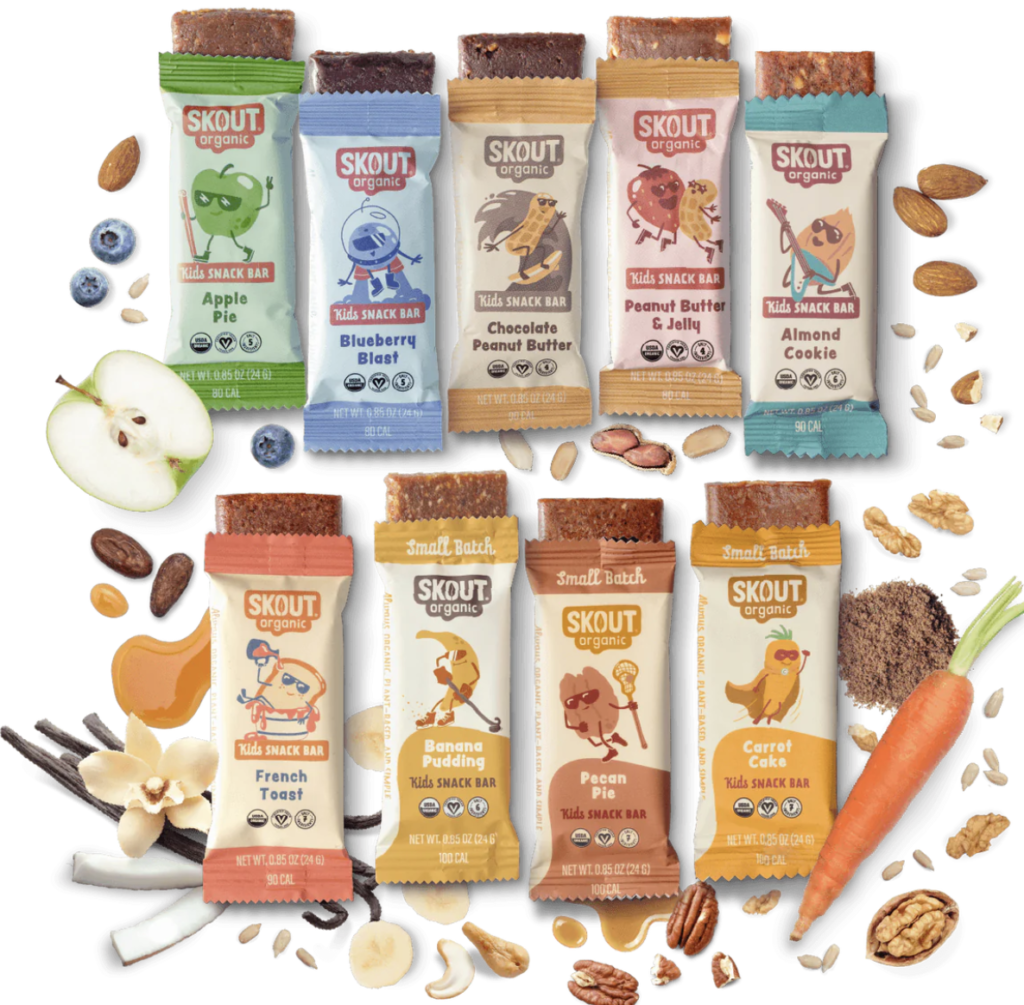
Skout Bars: Skout Organic is focused on making their snacks organic, plant-based, and simple. They have so many different types of flavors ranging from fruity to chocolaty to nutty that my kids love as a treat but are also filled with nourishing ingredients.
Discount Code: OUTSIDE for 20% off!
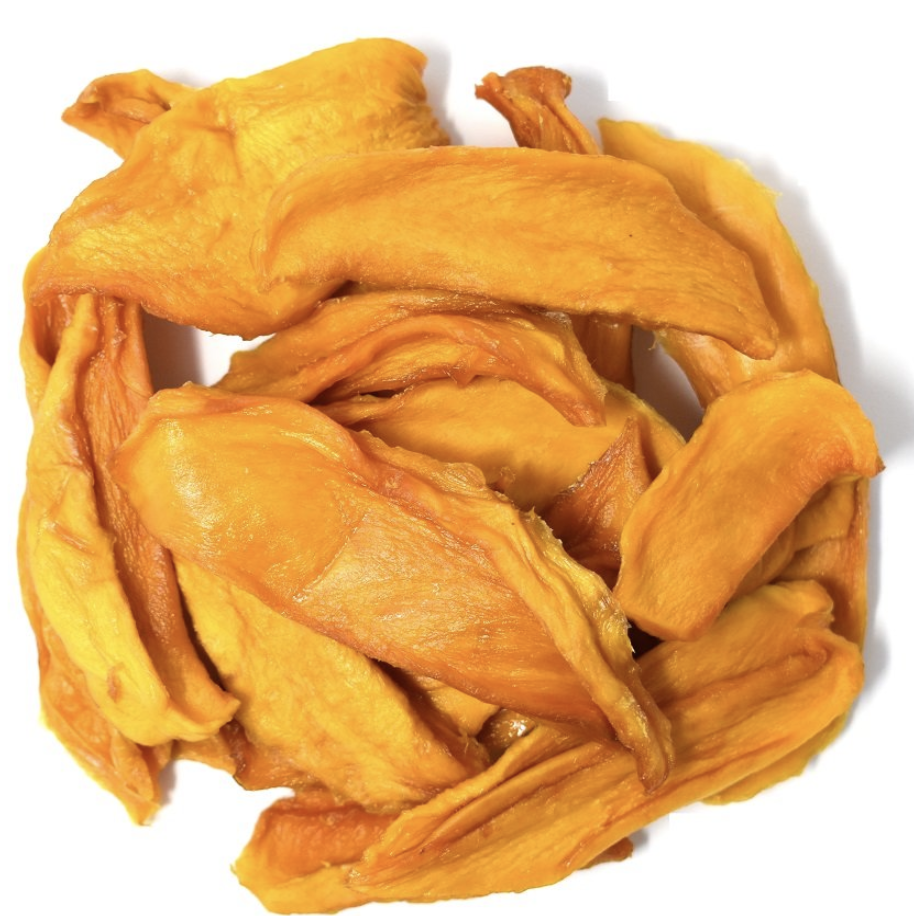
Dried Mangos: Dried mangoes are sweet, have a great chewy texture and make great hiking snacks. I like to look for ones without any added sugar as they are already very sweet. These are always a favorite in our house. I usually get mine from Trader Joe’s.
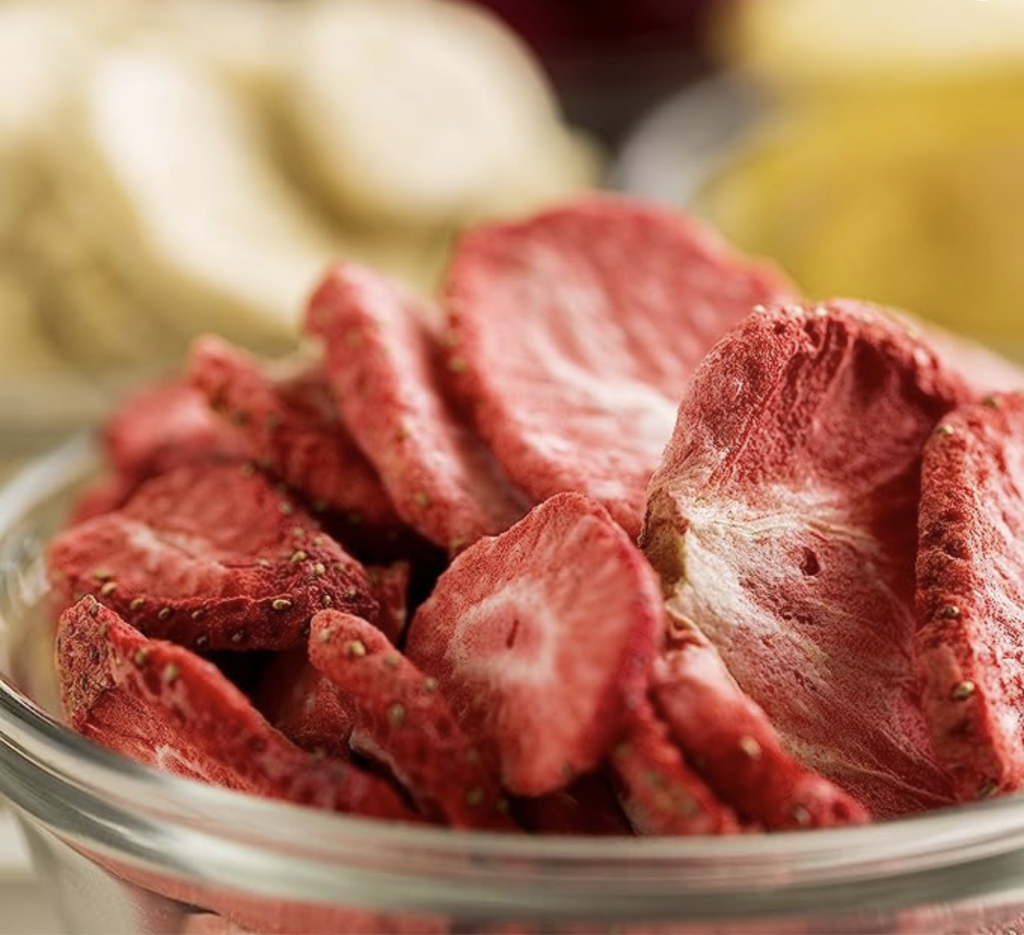
Freeze Dried Strawberries: Freeze dried strawberries are a great crunchy snack that’s nice and sweet and a little tart. I make sure to mix my fruits in with proteins and healthy fats so the kids stay full and are getting the energy they need to tackle the trail. I like to buy these in bulk because they’re so much less expensive, and then just put them in a baggy before a hike.
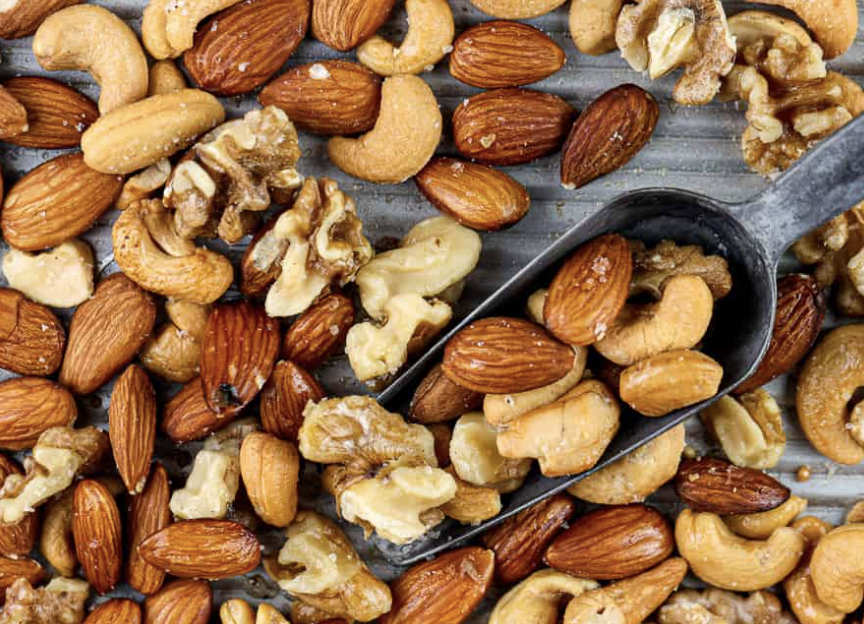
Salted Roasted Nuts: I love a variety of nuts and ones that are salted and roasted are my favorite. The salt is extra nice to have on hikes where we are sweating a lot and depleting our sodium and electrolytes. Small handfuls pack a big dose of protein and healthy fats into our snack bag.
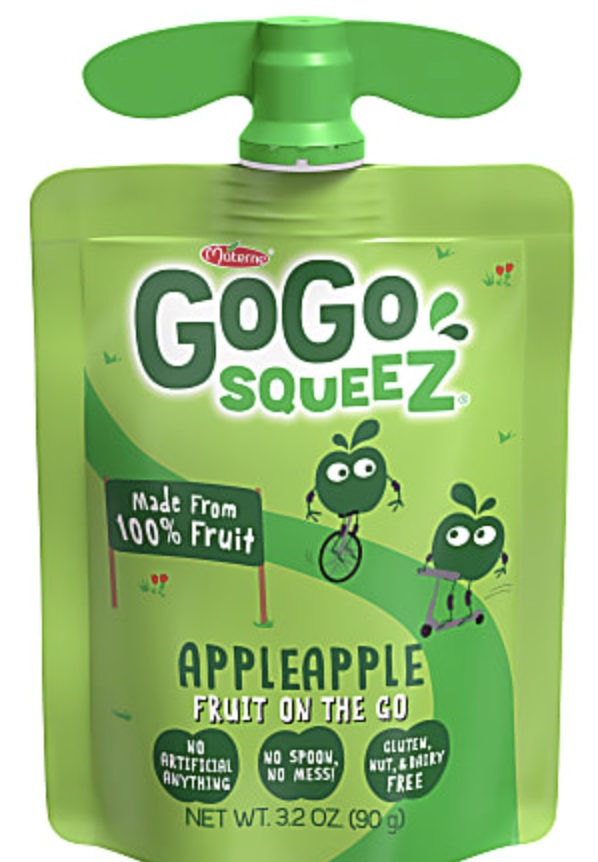
Applesauce Pouches: These are so easy to eat and my kids love them making them great hiking snacks. There are many different flavors from my favorite brand, and it’s a great way to fill their stomachs with something I know they’ll eat and enjoy. I also like to bring these on my hikes for some quick, natural sugar.
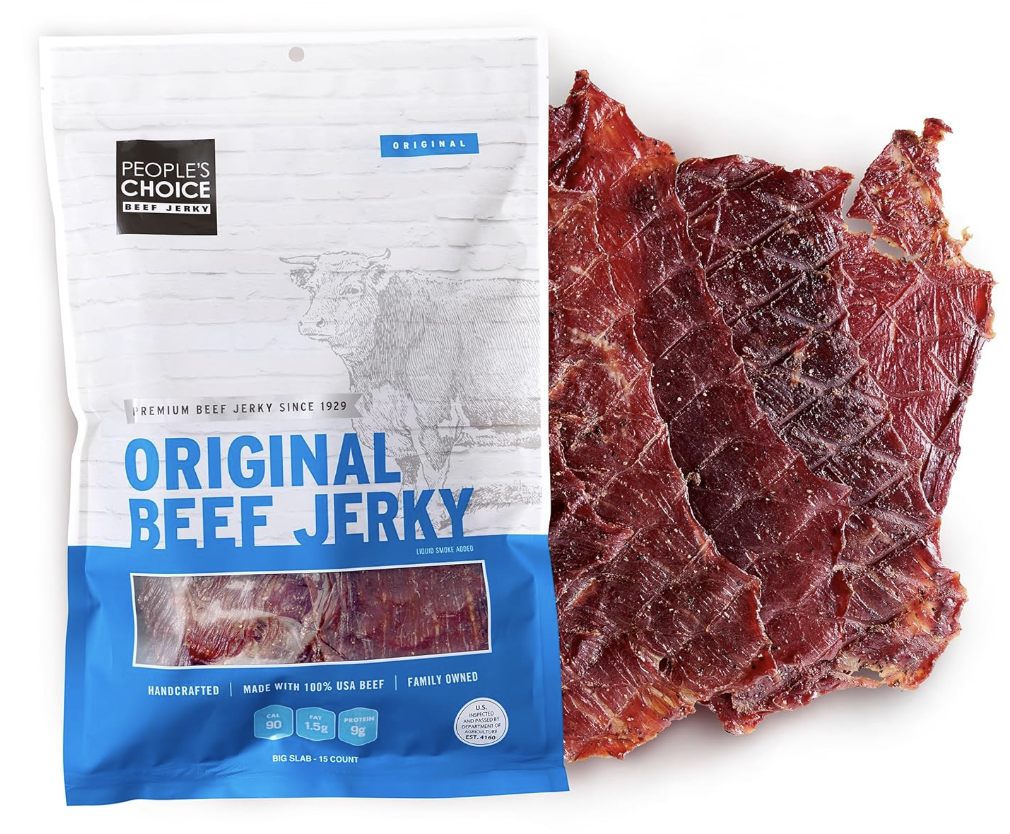
Beef Jerky: Much like the beef sticks, these make getting protein in delicious and so accessible. I like this People’s Choice brand because of the simple ingredients and it’s delicious!
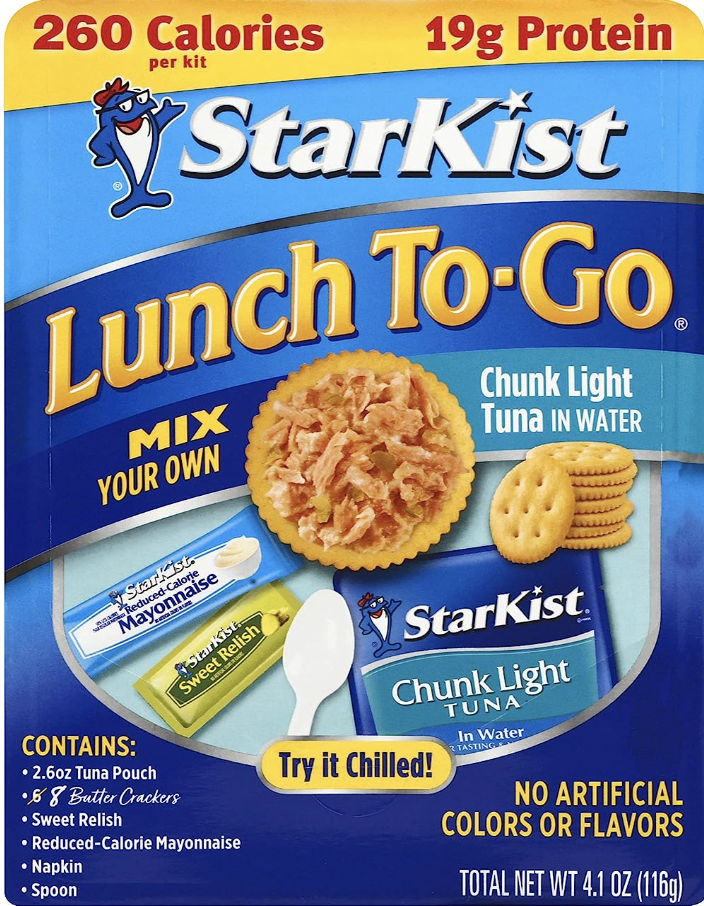
Tuna Packs: I often bring tuna packs on backpacking trips, but for a longer day hike, these make great hiking snacks. I also like the lunch to-go options because my kids will eat these for a meal on the trail. They are filled with protein and I like to eat mine with crackers. But it’s also great on a tortilla or a piece of bread. Here is the link to the plain Tuna pack.
If you enjoyed this post about Quick and Healthy Hiking Snacks, be sure to check out these posts!

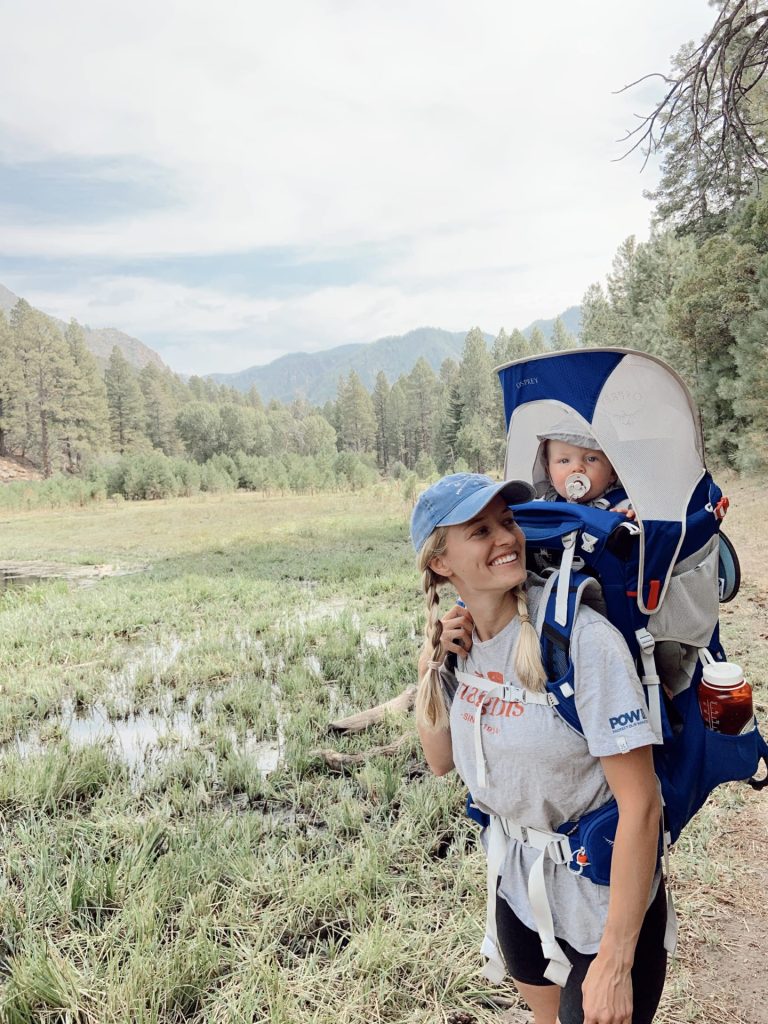
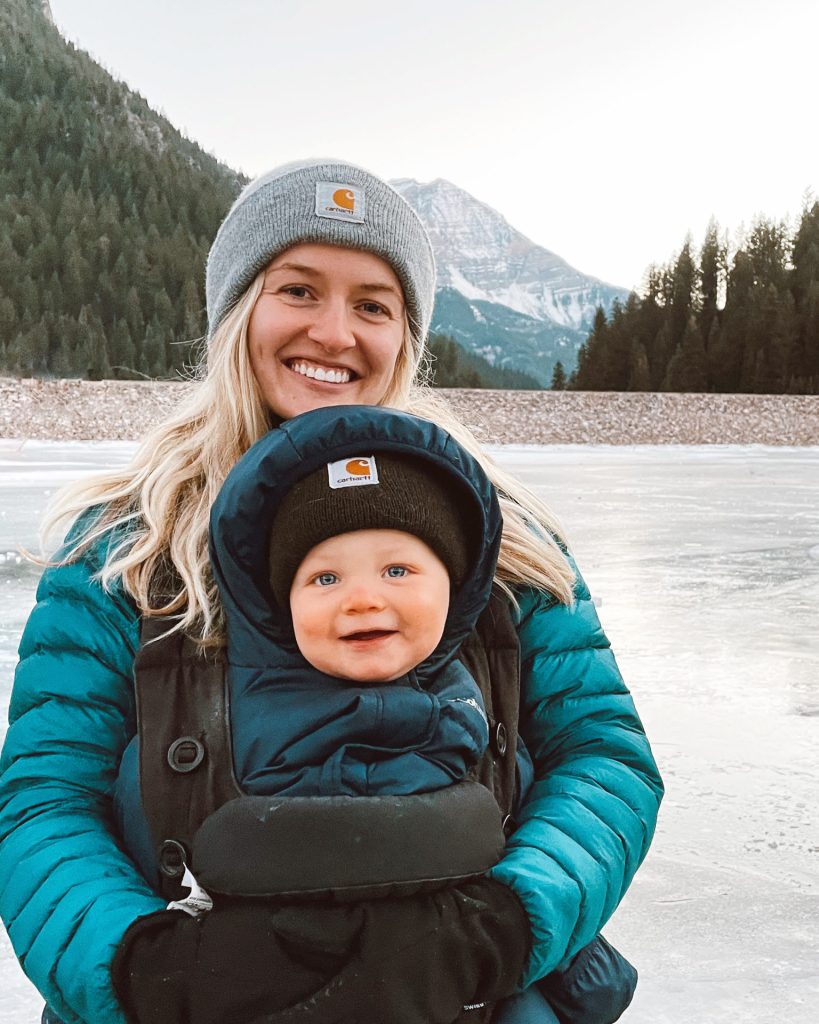
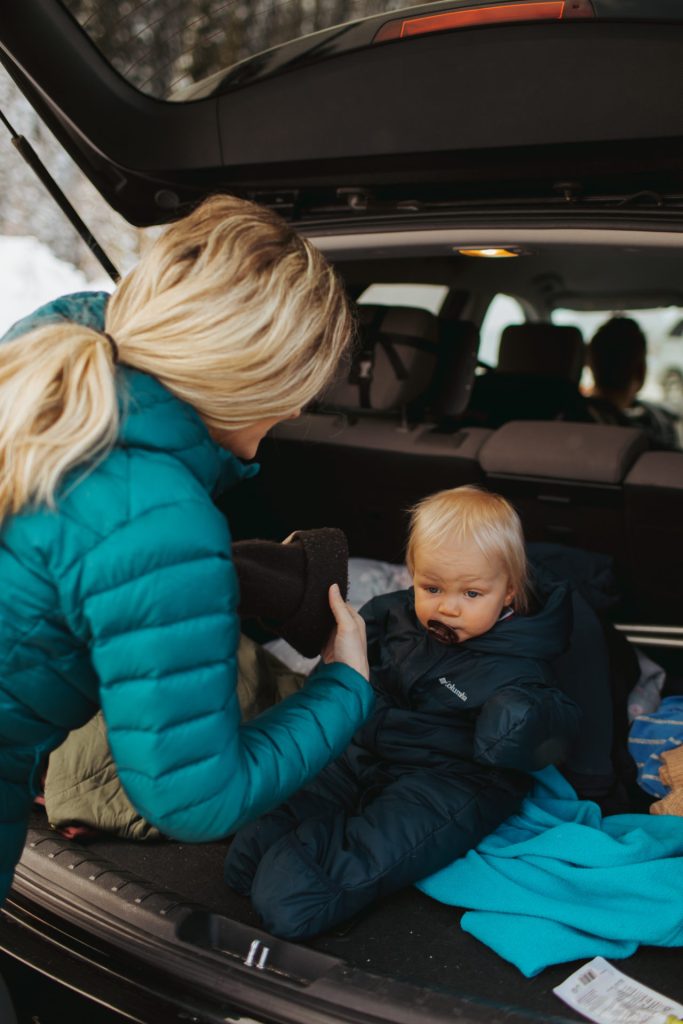
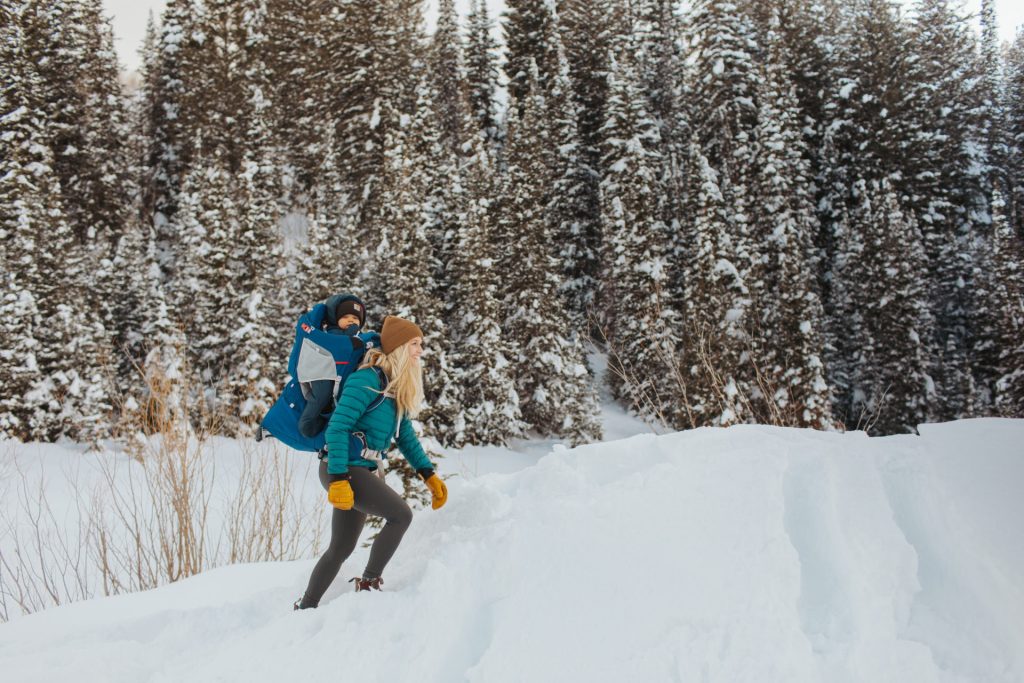

Some of my favorite hiking and non hiking snacks on this list! And a few new ones to try!
Oh I’m so glad! I love finding new hiking snacks to try out!